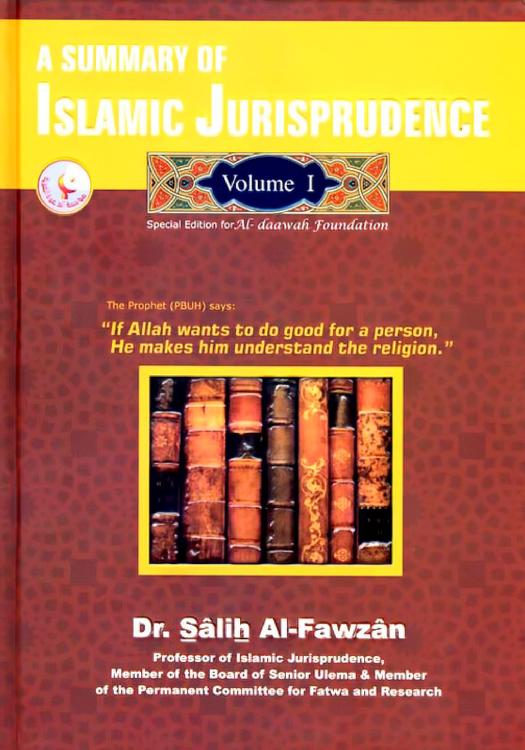Al Fiqh Al Islami Wa Adillatuhu English Pdf

A BRIEF CONCEPTUAL OUTLINE by Dr. Adi Setia Introduction The Islamic Gift Economy (IGE; al-Iqtisad al-Infaqi or al-Iqtisad al-Ihsani) can be envisioned as an integrative economic system based on the operative principles of cooperation ( ta‘awun), (2) mutual consent ( ‘an taradin/muradatin) (3) and partnership ( musharakah), and these are in turn founded on the principal ethical precepts of rahmah (mercy), gratitude ( shukr), generosity ( karam/ihsan), moderation ( tawazun/ ‘iffa), khilafah (trusteeship) and amanah (integrity). These operative precepts are grounded in the foundational psycho-cosmological outlook expressed in the belief that (i) the natural and cultural (4) resources of the world are abundant, (5) while (ii) the material needs, wants and desires of human beings are in fact limited (6) and should be limited. (7) Allah Most High is beautiful and loves beauty The natural and cultural resources of the world seen as blessings and bounties ( fadl) from the Merciful Creator ( ni‘am/ala’ al-Khaliq) are abundant and even unlimited in principle because wa in ta‘uddu ni‘mataLlahi la tuhsuha: “if you count the bounty of Allah you will not exhaust it” ( Ibrahim: 34).
Audio Books & Poetry Community Audio Computers & Technology Music, Arts & Culture News & Public Affairs Non-English Audio Radio Programs Librivox Free Audiobook Spirituality & Religion Podcasts.
(8) Viewed in the light of belief ( iman), these resources are gifts and favors ( ala’) from the realm of transcendence to which the human ethico-cognitive response is gratitude ( shukr), which in turn results in contentment and fulfillment ( qana‘ah). Hence humankind will take according to his need but not his greed, for because of abundance and plenitude there is no anxiety over scarcity that feeds greed ( tama‘) and accumulation (takathur/jam‘ al-mal wa ta‘diduhu). (9) Moreover, shukr itself becomes an existential and psychological state of being that is itself generative of abundance ( ziyadah) both material and spiritual, for la in shakartum la’azidannakum = “verily, if you give thanks, I will indeed give you more” ( Ibrahim: 7). Thus by definition, Islamic economics is an economics of abundance, (10) and never an economics of scarcity.
While in Kenya I studied a part of Fiqh us-Sunnah (chapter on taharah) from Sayyid Sabiq (a student of Hassan al-Banna and teacher of Yusuf al-Qardawi) in Arabic with a teacher (next to Safinatu an-Najaa; we compared) and he told me most of the modern scholars, the scholars nowadays, refer to and teach from this recent and modern fiqh-book. It is worldwide a very popular book. Later on, when staying in Lamu, I received several parts of the English translation of this book from someone who studied shari’ah in Sudan. I also studied al-‘Aqaa’id al-Islamiyyah (partly) from the same author (1967), in Arabic, and there is, as far as I know, no English translation of this masterpiece on ‘aqida (according to my teacher influenced by Ibn Taymiyyah) until now. My main focus in this post though will be Fiqh us-Sunnah. Roland gw 8 stili.
I heard several things on this book and decided to do some research on the author and the work. I first saw a Dutch translation of this book years ago, before I was a muslim, at the home of a Moroccan friend. An introduction on Fiqh us-Sunnah and Sayyid Sabiq can be read here: Fiqh us-Sunnah has been translated into English by Jamaal al-Din Zarabozo: but there are several versions in circulation. A lectutre on the book by Zarabozo can be downloaded from his website: (“Commentary on Fiqh al-Sunnah” = Q.
& A.) – Not very good quality though! Wa aleykum salam wa rahmatullah dear brother Suhaib, Alhamdulillah, barakallahu fik for your comment, I feel honored and I appreciate this very much.
I can tell you that in the note of the reviewer Ahmad Zaki Hammad on pag. Xvi of the English translation of the Fiqh us-Sunnah it is written that the book is based on the Za’d al-Ma’ad of Ibn ul-Qayyim, the Nayl al-Awtar of ash-Shawkani, ad-Durar al-Bahiyah and as-Sayl al-Jarar (by the same author), the Bidayat al-Mujtahid by Ibn Rushd, Ibn Qudama’s al-Mughni and as-San’ani’s Subul us-Salam. See the following link: Hope this suffices. Fi amanillah, Harun. You have a nice setup for the seeker of truth.
May Allah reward you abundantly for your effort and struggle. Your motto is reflective of the wisdom indicated in the Qur’an, 12:76, that above one who has knowledge there is always someone who has even more knowledge, and in 17:85 that mankind is really provided only a small part of knowledge. By the way, I am wanting to have a copy of the original Arabic version of Fiqh us-Sunnah. The site mentioned in your blog does not function properly. Hope you can suggest a way.